Ditapis dengan

Publikasi Peraturan Kepala Kantor Otoritas Pelabuhan Utama Tanjung Priok Tent…
- Edisi
- 1
- ISBN/ISSN
- -
- Deskripsi Fisik
- -
- Judul Seri
- Publikasi Peraturan Kepala Kantor Otoritas Pelabuhan Utama Tanjung Priok Tentang Standar Kinerja Pelayanan Operasional Pelabuhan Pada Pelabuhan Tanjung Priok
- No. Panggil
- REF GEN PUB o
- Edisi
- 1
- ISBN/ISSN
- -
- Deskripsi Fisik
- -
- Judul Seri
- Publikasi Peraturan Kepala Kantor Otoritas Pelabuhan Utama Tanjung Priok Tentang Standar Kinerja Pelayanan Operasional Pelabuhan Pada Pelabuhan Tanjung Priok
- No. Panggil
- REF GEN PUB o

Safety and Security.: The Practitioner's devinitive guide/ Singapore Logisti…
- Edisi
- 2nd ed.
- ISBN/ISSN
- 978-981-4266-18-5
- Deskripsi Fisik
- 263p.:20 cm
- Judul Seri
- -
- No. Panggil
- TXT LO KHI s
- Edisi
- 2nd ed.
- ISBN/ISSN
- 978-981-4266-18-5
- Deskripsi Fisik
- 263p.:20 cm
- Judul Seri
- -
- No. Panggil
- TXT LO KHI s

Impact of Maritime Labour Convention on design of new ships
The Maritime Labour Convention (MLC) embodies standards of existing international maritime labour conventions and recommendations, as well as the fundamental principles to be found in other international labour conventions. The aim of the convention is to address the employment standards of seafarers in the areas of fair wages, contractual terms, working and living conditions, as well as their…
- Edisi
- Vol. 2 No. 4, 2017 pp. 376-388
- ISBN/ISSN
- 2397-3757
- Deskripsi Fisik
- 14 P
- Judul Seri
- Maritime Business Review
- No. Panggil
- ATC PO CHI i

The Brazilian seaport system: A post-1990 institutional and economic review
This paper addresses the remarkable institutional and economic changes in the Brazilian seaport system in the past 25 years. Port throughput has increased substantially following the growth in foreign trade and the institutional framework had remarkable changes, but it is still required to enhance private investment infrastructure by a clearer regulation and transport integration improvement. F…
- Edisi
- -
- ISBN/ISSN
- 2210-5395
- Deskripsi Fisik
- 13 p.
- Judul Seri
- Research in Transportation Business & Management
- No. Panggil
- ATC PO VAO t

Price regulation and cost accounting: the case of the Portuguese seaport sect…
The purpose of this paper is to illustrate how a stakeholder approach based on a case-study research was used to define a method to be applied across the Portuguese seaport administrations (SA) in order to justify the tariffs to be charged for a variety of services provided by these entities. Design/methodology/approach – The study involved both the Portuguese maritime transport regulator (IP…
- Edisi
- Vol. 55 Iss 6 pp
- ISBN/ISSN
- 08-2012-0030
- Deskripsi Fisik
- 21 p .
- Judul Seri
- International Journal of Law and Management
- No. Panggil
- ATC MG MAR p

Intra-port competition, regulatory challenges and the concession of callao port
- Edisi
- (2004) 6, 279–311
- ISBN/ISSN
- 1479-2931
- Deskripsi Fisik
- 336 p.
- Judul Seri
- Maritime Economics & Logistics
- No. Panggil
- ATC PO DEF i
- Edisi
- (2004) 6, 279–311
- ISBN/ISSN
- 1479-2931
- Deskripsi Fisik
- 336 p.
- Judul Seri
- Maritime Economics & Logistics
- No. Panggil
- ATC PO DEF i
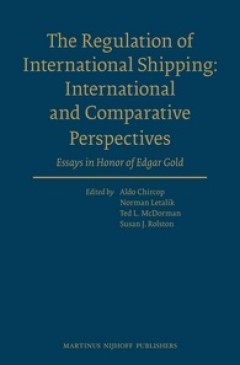
the Regulation of international shipping : international and comparative pers…
- Edisi
- -
- ISBN/ISSN
- 978-90-04-20244-3
- Deskripsi Fisik
- xv, 585 p.
- Judul Seri
- -
- No. Panggil
- TXT LO CHI r
- Edisi
- -
- ISBN/ISSN
- 978-90-04-20244-3
- Deskripsi Fisik
- xv, 585 p.
- Judul Seri
- -
- No. Panggil
- TXT LO CHI r
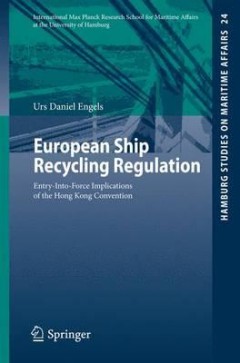
European ship recycling regulation : entry-into-force implications of Hong Ko…
- Edisi
- -
- ISBN/ISSN
- 978-3-642-35597-4
- Deskripsi Fisik
- xiv, 318
- Judul Seri
- -
- No. Panggil
- TXT MR ENG e
- Edisi
- -
- ISBN/ISSN
- 978-3-642-35597-4
- Deskripsi Fisik
- xiv, 318
- Judul Seri
- -
- No. Panggil
- TXT MR ENG e
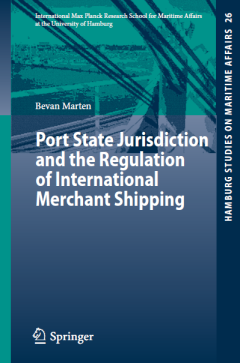
Port state jurisdiction and the regulation of international merchant shipping
- Edisi
- -
- ISBN/ISSN
- 978-3-319-00351-1
- Deskripsi Fisik
- -
- Judul Seri
- -
- No. Panggil
- TXT PO Mar p
- Edisi
- -
- ISBN/ISSN
- 978-3-319-00351-1
- Deskripsi Fisik
- -
- Judul Seri
- -
- No. Panggil
- TXT PO Mar p
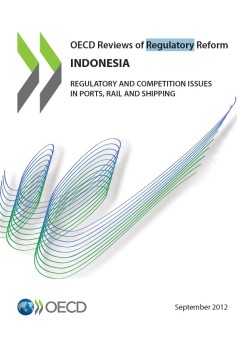
OECD reviews of regulatory reform Indonesia, regulatory and competition issue…
- Edisi
- -
- ISBN/ISSN
- -
- Deskripsi Fisik
- 47 p.
- Judul Seri
- -
- No. Panggil
- TXT PO OEC o
- Edisi
- -
- ISBN/ISSN
- -
- Deskripsi Fisik
- 47 p.
- Judul Seri
- -
- No. Panggil
- TXT PO OEC o

Product carbon footprint developments and gaps
Over the last decade, multiple initiatives have been undertaken to learn how to capture the carbon footprint of a supply chain at a product level. The purpose of this paper is to focus on the process of standardization to secure consistency of product carbon footprinting (PCF) and to outline how the current developments in PCF support the need for a standardized method to measure and report env…
- Edisi
- Vol. 42 No. 4, 2012
- ISBN/ISSN
- -
- Deskripsi Fisik
- 19 p.
- Judul Seri
- International Journal of Physical Distribution & Logistics Management
- No. Panggil
- ATC LO KRO p

Freight logistics in the New Zealand context
It is well known that within an economic region, shippers' practice of logistics is shaped significantly by various factors, such as transportation regulation. The precise purpose of this paper is to describe these factors and their influence on logistics practice in the New Zealand context. Discusses the various modes of domestic freight transport, as well as the deregulation and privatization…
- Edisi
- Vol. 30 No. 2, 2000, pp. 145-164
- ISBN/ISSN
- -
- Deskripsi Fisik
- 22 p.
- Judul Seri
- International Journal of Physical Distribution & Logistics Management
- No. Panggil
- ATC LO SAN f
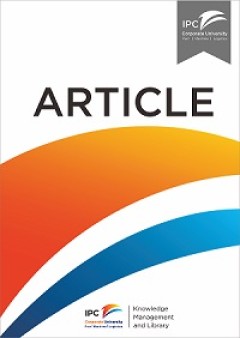
External constraint on scheduled container liner shipping operations
The container shipping sector which provides scheduled services on a global basis is facing unprecedented challenges from not only the impact of the global financial crises of 2009 and the Euro zone crises of 2011, but also the European Union’s decision to repeal EC Regulations 4056/86 with effect from October 2008. In addition evolving economic regulations are seen to be increasingly hostile…
- Edisi
- vol 28
- ISBN/ISSN
- -
- Deskripsi Fisik
- 22 pages
- Judul Seri
- A view from economic regulation in european union
- No. Panggil
- ATC PO NAI e
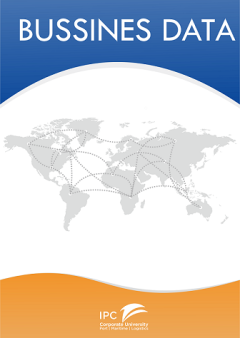
Medical Device Regulations - Indonesia - Q4 2017
The registration of medical devices is carried out by the Directorate General of Pharmaceutical Services and Medical Devices (Dirjen Binfar dan Alkes), within the MoH. The registration of medical devices is currently implemented through Regulation No. 1190/MENKES/PER/VIII/2010 Regarding Marketing Licence of Medical Devices and Household Products.
- Edisi
- Q4 2017
- ISBN/ISSN
- -
- Deskripsi Fisik
- 3 p.
- Judul Seri
- -
- No. Panggil
- BD BMI m

The complexities of working in the international records management business …
Focuses on the records management function in national, multi‐national and service organizations. Describes the problems that can occur when documents are generated and managed in different countries by staff with different cultural assumptions, logistical options, languages and legal requirements.
- Edisi
- Vol. 13 Issue: 3, pp.111-116
- ISBN/ISSN
- -
- Deskripsi Fisik
- 17 p.
- Judul Seri
- Records Management Journal
- No. Panggil
- ATC LO VAI t

Six days on the road: Will I make it home safely tonight? Examining attitudes…
This research aims to examine the stressors that professional truck drivers experience and the impact these stressors may have on road safety.
- Edisi
- Vol. 24 No. 2, 2013 pp. 210-229
- ISBN/ISSN
- -
- Deskripsi Fisik
- 22 p.
- Judul Seri
- The International Journal of Logistics Management
- No. Panggil
- ATC LO KEM s

Forces, trends, and decisions in pharmaceutical supply chain management
The purpose of this paper is to identify and examine the major forces that are changing the way biopharmaceutical medications are purchased, distributed, and sold throughout the supply chain. This will become important as healthcare reform moves forward, and logistics will be transformed in this industry.
- Edisi
- Vol. 41 No. 6, 2011 pp. 601-622
- ISBN/ISSN
- -
- Deskripsi Fisik
- 24
- Judul Seri
- International Journal of Physical Distribution & Logistics Management
- No. Panggil
- ATC LO ROS f

E-tail emotion regulation: examining online hedonic product purchases
This research examines how hedonic shopping experiences for online music impact emotion regulation processes and how feelings regarding previous online music purchases influence repeat purchase behaviour. The paper aims to introduce a model that explains and examines the meditating role of consumers’ attitudes, emotion regulation and subjective norms in the shopping experience for online music.
- Edisi
- Vol. 41 No. 2, 2013 pp. 155-170
- ISBN/ISSN
- -
- Deskripsi Fisik
- 18 p.
- Judul Seri
- International Journal of Retail & Distribution Management
- No. Panggil
- ATC LO KEM e
 Karya Umum
Karya Umum  Filsafat
Filsafat  Agama
Agama  Ilmu-ilmu Sosial
Ilmu-ilmu Sosial  Bahasa
Bahasa  Ilmu-ilmu Murni
Ilmu-ilmu Murni  Ilmu-ilmu Terapan
Ilmu-ilmu Terapan  Kesenian, Hiburan, dan Olahraga
Kesenian, Hiburan, dan Olahraga  Kesusastraan
Kesusastraan  Geografi dan Sejarah
Geografi dan Sejarah